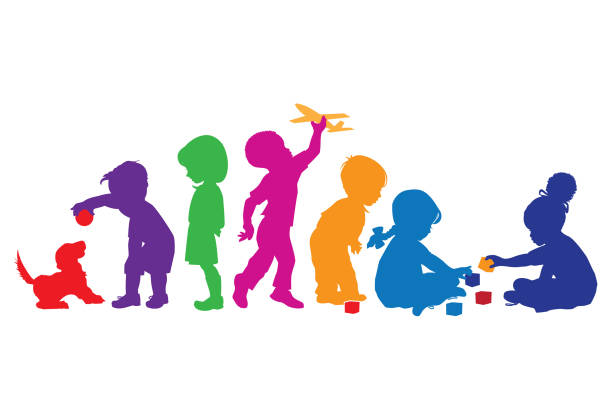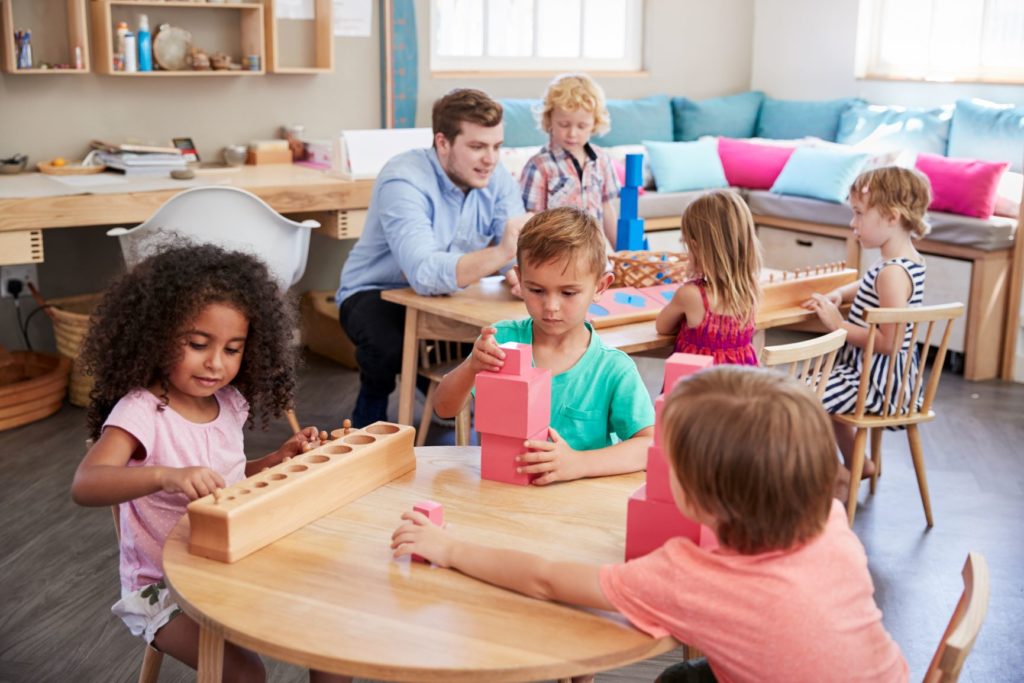Why Parents Prefer Daycare North York For Nurturing Growth
Wiki Article
The Duty of DAYCARE in Fostering Social Skills and Very Early Learning
Daycare offers as a significant environment for children, helping with crucial social interactions that promote very early learning. In this structured setup, children engage with caretakers and peers, creating vital interaction and cooperation skills. As they navigate play and different tasks, they learn to fix problems and construct emotional intelligence. Comprehending the subtleties of these communications discloses the extensive impact day care has on a kid's advancement, forming their future partnerships and scholastic preparedness. What certain abilities do youngsters acquire in this setting?The Significance of Social Interaction in Day Care
While lots of moms and dads acknowledge the relevance of very early youth education, the function of social interaction in day care is typically undervalued. Childcare setups supply kids with invaluable chances to engage with peers, promoting vital social skills. During these formative years, kids discover to navigate different social characteristics, such as sharing, cooperation, and dispute resolution. Connecting with diverse age and individualities improves their capability to adapt to different environments and create empathy towards others.:max_bytes(150000):strip_icc()/GettyImages-956997658-af489cbf5e3b4a2cbe26e2e78016a0a2.jpg)
Building Communication Skills With Play
Play functions as an effective tool for kids to develop crucial communication skills in daycare settings. Through various play activities, children talk, share their ideas, and find out to pay attention to others. Parlor games, as an example, encourage them to use language in different contexts, advertising vocabulary expansion and understanding of social signs.
Furthermore, narration throughout play permits children to communicate emotions and ideas, helping them create narrative skills and self-confidence in their verbal expressions. Overall, play not only acts as a pleasurable leisure activity but likewise as an essential platform for establishing the interaction abilities necessary for successful social interactions in later life.
Motivating Cooperation and Teamwork
Collaboration and team effort are essential skills that children can cultivate in day care atmospheres. Via numerous team tasks, such as building projects or collaborative games, children learn to share duties and job toward common goals. These interactions cultivate an understanding of the significance of paying attention to others, working out functions, and jeopardizing when required.In day care settings, caregivers typically produce chances for kids to engage in teamwork by encouraging them to take part in team jobs. This not just assists children develop social bonds but additionally grows a feeling of belonging and neighborhood.
As they navigate these cooperative experiences, children acquire important insights into the characteristics of functioning with peers. They discover to appreciate diverse viewpoints and recognize that each participant adds distinctively to the group initiative. Eventually, these early lessons in collaboration and team effort prepared site for much healthier partnerships and efficient collaboration in future social and scholastic settings.
Structured Learning Activities and Cognitive Growth
Structured discovering activities play an integral function in cultivating cognitive advancement in young children (Childcare Near Me). These tasks, that include puzzles, storytelling, and hands-on experiments, promote important thinking and analytical abilities. In a day care setup, structured discovering encourages kids to involve with their peers, enhancing their capability to process info and understand different principles
With guided play and interactive tasks, children create foundational abilities such as numeracy and proficiency. Tasks focused around numbers can help kids realize mathematical concepts, while storytelling improves language purchase and comprehension. Additionally, structured discovering allows educators to evaluate developing development and dressmaker tasks to specific learning needs.

Including a varied series of organized tasks not just advertises cognitive development yet also prepares children for future academic success. By offering a well balanced atmosphere that cultivates expedition and inquiry, childcare programs play a crucial role fit the cognitive capacities of young students.
Promoting Emotional Intelligence and Self-confidence
Psychological intelligence and self-confidence are essential parts of a youngster's advancement, complementing the cognitive abilities cultivated with structured knowing activities. In childcare setups, kids are offered with opportunities to express their emotions and participate in social communications, which are essential for constructing psychological recognition. Via guided play and group activities, children discover to identify their feelings, acknowledge those of others, and establish empathy.Furthermore, interaction with caregivers and peers helps to grow self-confidence and strength. Favorable support and support from grownups equip youngsters to take dangers and face challenges, cultivating a feeling of achievement. As they browse social characteristics, youngsters develop confidence in their capabilities to communicate, collaborate, and deal with disputes - Childcare North York. This caring atmosphere enables for the steady growth of emotional intelligence, which is important for future social partnerships and overall wellness. Therefore, daycare plays a considerable duty in fostering both psychological knowledge browse this site and self-confidence in little ones
Often Asked Concerns
Just How Can Moms And Dads Choose the Right Day Care for Their Kid?
Moms and dads need to consider elements such as place, team credentials, safety standards, curriculum, and examines from various other parents when choosing the ideal daycare for their kid, ensuring it lines up with their kid's developing needs and family values.
What Age Is Best for Starting Daycare?

Exactly How Does Daycare Effect Kid's Habits in your home?
Daycare frequently favorably affects youngsters's behavior in your home by enhancing social skills, advertising independence, and motivating psychological guideline (Daycare North York). Because of this, children might exhibit better communication and cooperation, causing even more harmonious family members characteristicsExist Any Kind Of Downsides to Daycare Attendance?
Yes, there are disadvantages to daycare participation, including possible separation stress and anxiety, direct exposure to illnesses, and inconsistent caregiving. These factors can affect a youngster's psychological well-being and adjustment in the house, discover this impacting overall household characteristics.Just How Can Moms And Dads Assistance Social Skills Discovered at Day Care?
Parents can support social skills discovered at childcare by facilitating playdates, urging cooperative activities, modeling positive communications, going over sensations, and reinforcing sharing and communication in your home, consequently enhancing their kid's social growth and confidence.Daycare offers as a significant environment for young children, helping with essential social communications that promote very early learning. Day care settings give youngsters with invaluable opportunities to engage with peers, fostering important social skills. Play offers as an effective tool for kids to build crucial interaction abilities in day care settings. In childcare setups, kids are provided with possibilities to share their emotions and engage in social communications, which are important for developing emotional awareness. Childcare usually favorably affects youngsters's habits at home by improving social abilities, promoting independence, and motivating emotional law.
Report this wiki page